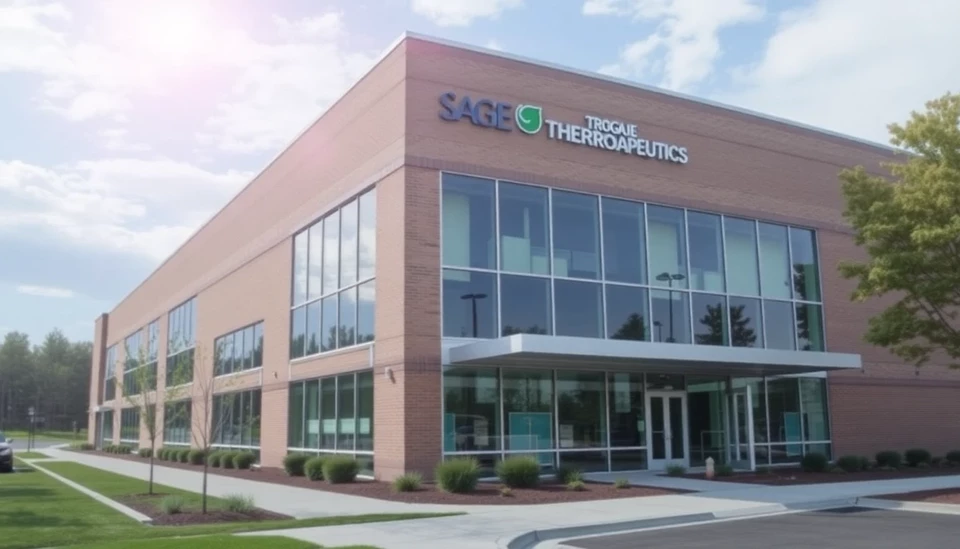
In a significant development for the pharmaceutical sector, Sage Therapeutics, a leader in the field of brain health, has attracted attention with a substantial takeover offer from Biogen totaling $469 million. This unexpected bid marks a pivotal moment for Sage, known for its innovative approaches to treating neurological disorders. The proposal comes as both companies strive to enhance their portfolios and capabilities in the competitive biopharmaceutical market.
The offer from Biogen represents a strategic move, aligning with ongoing industry trends that favor consolidation to optimize resources and broaden market reach. The bid immediately sent Sage's stock surging, reflecting investor optimism about the potential merger. Analysts suggest that this acquisition could lead to breakthroughs in areas like depression, where Sage has made significant advances with its leading product candidates.
Sage Therapeutics has been notably recognized for its pioneering research in mental health, particularly for its advancements in developing therapies that address treatment-resistant depression. The company's lead candidate, zuranolone, has garnered attention for its promising results and potential to revolutionize patient care for those battling mental health disorders. The bid from Biogen could significantly bolster Sage's capabilities in bringing its products to market and enhancing research and development efforts.
Biogen, on the other hand, has been facing pressures due to slowing growth and increasing competition in the biopharmaceutical landscape. The acquisition of Sage Therapeutics could provide Biogen with new resources, ideas, and product lines that could invigorate its business model. With a stronger foothold in the mental health arena, Biogen could diversify its offerings beyond its traditional focus on neurological diseases.
This proposed acquisition has the potential to reshape the landscape of neurological treatments, presenting opportunities for both companies to explore synergies that could enhance their product development pipelines. Moreover, the deal signifies a broader trend within the biopharmaceutical sector where companies are increasingly pursuing mergers and acquisitions to remain competitive and innovate in promising therapeutic areas.
However, while the proposal piques interest and excitement among shareholders and industry watchers alike, it remains crucial to consider the potential hurdles that could arise in the acquisition process. Regulatory approvals, integration challenges, and the ongoing dynamics of the biotechnology market will play significant roles in determining the success of this endeavor.
As negotiations progress and the situation evolves, stakeholders from both companies will be keenly watching how this deal unfolds and shapes the future of treatments for neurological disorders. With this move, Biogen and Sage Therapeutics could potentially set a new precedent in how mental health challenges are approached, demonstrating the power of collaboration in unlocking new avenues for patient care.
As experts continue to analyze the implications of this takeover bid, the industry remains poised for developments that could redefine therapeutic strategies and enhance the quality of life for millions battling neurological conditions.
#SageTherapeutics #Biogen #PharmaceuticalNews #MergersAndAcquisitions #NeurologicalDisorders #MentalHealth #StockMarket #HealthcareInnovation #BiotechTrends
Author: John Harris
